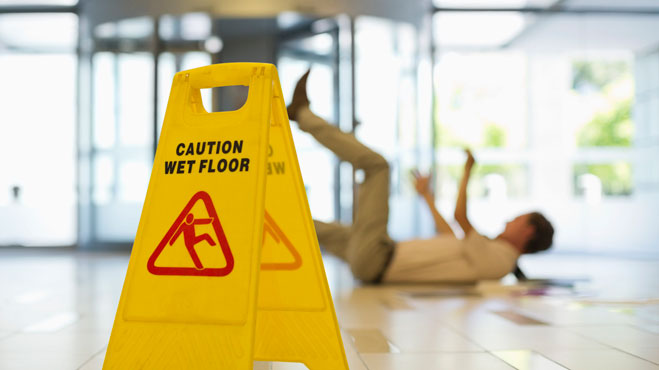
Easy Steps Every Business can Take to Avoid False WorkCover Claims
A false WorkCover claim negatively affects everyone involved. You, the small business employer, must now pay for your employee’s injury, even though you know it is not a true injury, which will take away from other more important matters like marketing and production. You also lose faith in one of your employees, and now you might wonder if one person does it, how will you know when someone is truly injured or when they are just faking?
So how can you stop employees from filing false WorkCover claims against your business? Follow these simple steps to avoid false WorkCover claims and build back your trust with your employees.
Make your workplace safe
Regardless of whether you are in an office building or at a restaurant, all places of work should be kept to the highest safety codes in order to avoid accidents. This means not only maintaining the quality of the building, but also maintaining the area around your place of work.
Here are a few things to remember about keeping your building safe:
- Check the floors: One of the easiest ways to be injured in the workplace is tripping on a loose piece of carpet. If you see any cracks in your floors or pieces of loose carpet, take the time to repair them.
- Comply with city standards: Most local councils will determine how often a building inspector should drop by or when your smoke alarms should be checked to make sure they work. Keep track of your inspections and make sure they are done routinely.
- Perform repairs quickly: If something does break down, do not waste any time. Get the wall, floor or machine fixed as quickly as possible.
Do not forget about the area surrounding your building as well. It is up to you to ensure that the footpaths and parking areas are kept clean. A fall on the business premises will almost certainly lead to a workcover claim, and it is an easy fix to avoid.
Mandate employee physical examinations before hiring
Let’s say you hire a person for a job that requires him or her to lift boxes weighing more than 50 pounds. Your new hire, who unknown to you had back surgery within the last year, suddenly throws his or her back out while lifting a box, then you are stuck with the bill and now your employee will be laid up.
To avoid situations like this one from occurring, it is important to have all employees submit to a physical before they are hired. You should be made aware if an employee’s pre-existing medical conditions so you can work with them to prevent any accidents or injuries.
If a medical examination shows that an employee is not physically able to carry on, it will be up to you to decide whether you want to amend the position so the employee can keep the job or whether you want to let that employee go.

Learn to recognise WorkCover fraud
You cannot have your eye on every employee, and you cannot see what goes on everywhere around your building, but you can become better at spotting WorkCover fraud and stopping it before it gets out of hand. Remember that no employer cannot deny any WorkCover claim upfront. Once the claim goes to the proper authorities – a work claim agent or directly to WorkSafe in case you are self-insured – you may then voice any concerns over the validity of the claim. It will then be up to the authorities to investigate your claims and make a decision for themselves.
When an employee makes a WorkCover claim, look at the timing of the injury. Did this person just return to work after a holiday or leave of absence? If so, then there is a good chance the injury could have occurred while the person was still out of the office. Though it is not impossible for an employee to be injured his or her first day back at work, you should try to determine what the employee was doing while out of the office. A hiking trip might better explain a twisted ankle than a fall at work.
You should also be cautious of employees who file claims long after the incident has happened. Claims like these are harder to disprove simply because they were so long ago. Of course, listen to the reason why the claim was made so late before pursing any dispute. There could be a valid reason, such as not knowing of any injury until a recent doctor’s appointment.
Beware of witness statements
Unfortunately, there are employees who are dishonest and will happily work together to build a false WorkCover claim. One person will be injured, and no one but this one employee saw the whole thing, which creates an easy and convenient story. You may have problems poking holes in it and end up paying the claim.
Do your best to find another witness if possible or ask around to see what other employees think of the witness and the injured party. These employees usually have reputations as being lazy, apathetic or negative, and your other employees might have doubts of their own.
If it helps, be sure to get a doctor of your choosing to examine the injured employee. His or her examination might tell a completely different story than that of the employee or the witness. This is an easy way to tell who is lying and who is telling the truth.
If you do suspect that a witness statement may be false, it will be up to you to provide evidence to support your belief. Should your case make it to a courtroom (hopefully it does not go that far), you will need sufficient evidence to prove that an employee provided a false witness statement. Make sure you have plenty of good, solid evidence before you accuse anyone of fraud.
Keep alert of new laws
The laws regarding WorkCover claims do change from time to time so it is important that you are up to date on any changes to the law. You might end up paying a WorkCover claim that you shouldn’t have.
Look out for any reforms on the following acts:
- Accident Compensation Act 1985
- Accident Compensation Act 1993 (WorkCover Insurance)
- Accident Compensation Amendment Bill 2009
Staying informed could make your life easier so always make sure you are updated on the newest laws and regulations.
Not all WorkCover claims are fraudulent. Accidents do happen, and employees do deserve to be compensated for their injuries. If you do right by your employees, cooperate with authorities and take preventative measures to maintain a safe working environment, then you should not have a problem with your WorkCover claims.






Leave a Reply
You must be logged in to post a comment.